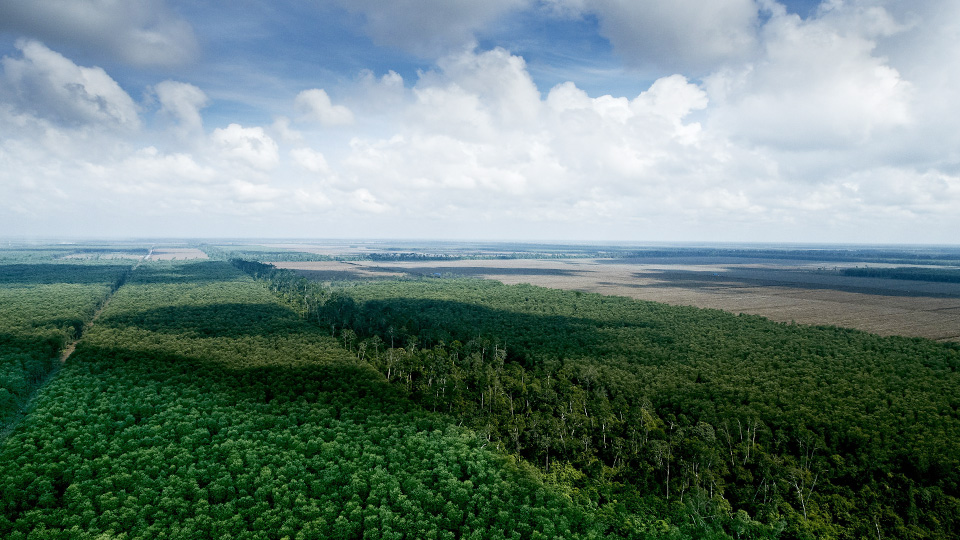- Details
The village of Teluk Dalam in Indonesia’s Riau Province is so remote that the nearest big city is a three-hour boat ride away. So the villagers are understandably proud of local resident Yogi Suardiwerianto, who returned recently after completing a Master’s degree in the Netherlands, supported by APRIL Group.
Yogi, aged 30, first studied at the Department of Marine Science at Bogor Agricultural Institute before returning to Riau in 2011 to look for work. He found a job as Assistant Trainee in the Peatland Management Department of APRIL Group subsidiary Riau Andalan Pulp and Paper, which is one of the largest employers in the area.
In 2015 his supervisor asked Yogi if he would be interested in continuing his studies at Master’s level, with all the costs covered by APRIL Group as part of its commitment to continuously invest in its employees.

Read more: From A Small Village to Studying in Europe with APRIL
- Details
When Ni'mah and her family first moved to Pangkalan Kerinci in Indonesia's Riau Province, economic circumstances forced them to live in a hut with no electricity and no running water.
"I used to live in a palm plantation in Pangkalan Kerinci," she says. "There were only seven families living there at the time. There was no electricity, and the roads were still made of dirt. If it rained, it became muddy.
"If I wanted to go to the market, I had to walk around five kilometres to get there."
Ni'mah and her husband moved to the area from Java in 2010, but with few skills, they found it difficult to get jobs, and made ends meet by growing fruits and vegetables.

- Details
Being a dock worker at the port for many years made Indra Gunawan feel as though he was not progressing in life.
Not only did he rarely meet his family, he also could not improve his family’s welfare.
“I worked as a dock worker for approximately six years, from 2006 until 2012. My income as a dock worker was very small,” Indra said.
It was because of this that Indra decided to change jobs from being a dock worker to a farmer in Kerinci Kanan of the Riau Province in Indonesia.
“The first reason was that I wanted to be closer to my family and also to the community.

- Details
In 2008 Helmi learned a very expensive lesson. Seeking a quick way to clear some land for farming, he lit a fire. The fire quickly spread out of control and engulfed neighbouring land, causing significant damage before it was extinguished.
For setting the fire in Kuala Tolam Village in Indonesia’s Riau province, Helmi was fined IDR20 million, and he and his wife had to sell their gold in order to meet the bill. At that moment he vowed that in future he would work to protect the forest.
Helmi’s story is not unusual. Fire has been used to clear land for generations by local communities lacking access to finance and modern equipment. As well as being quick and cheap, the ash from the destroyed forest acts as a fertiliser. But fires can easily spread out of control, particularly in the dry season, leading to events like the 2015 haze which blanketed much of the region in smoke and cost Indonesia almost two percent of its GDP, according to the World Bank.

Read more: One man’s journey from illegal burner to forest protector with APRIL




